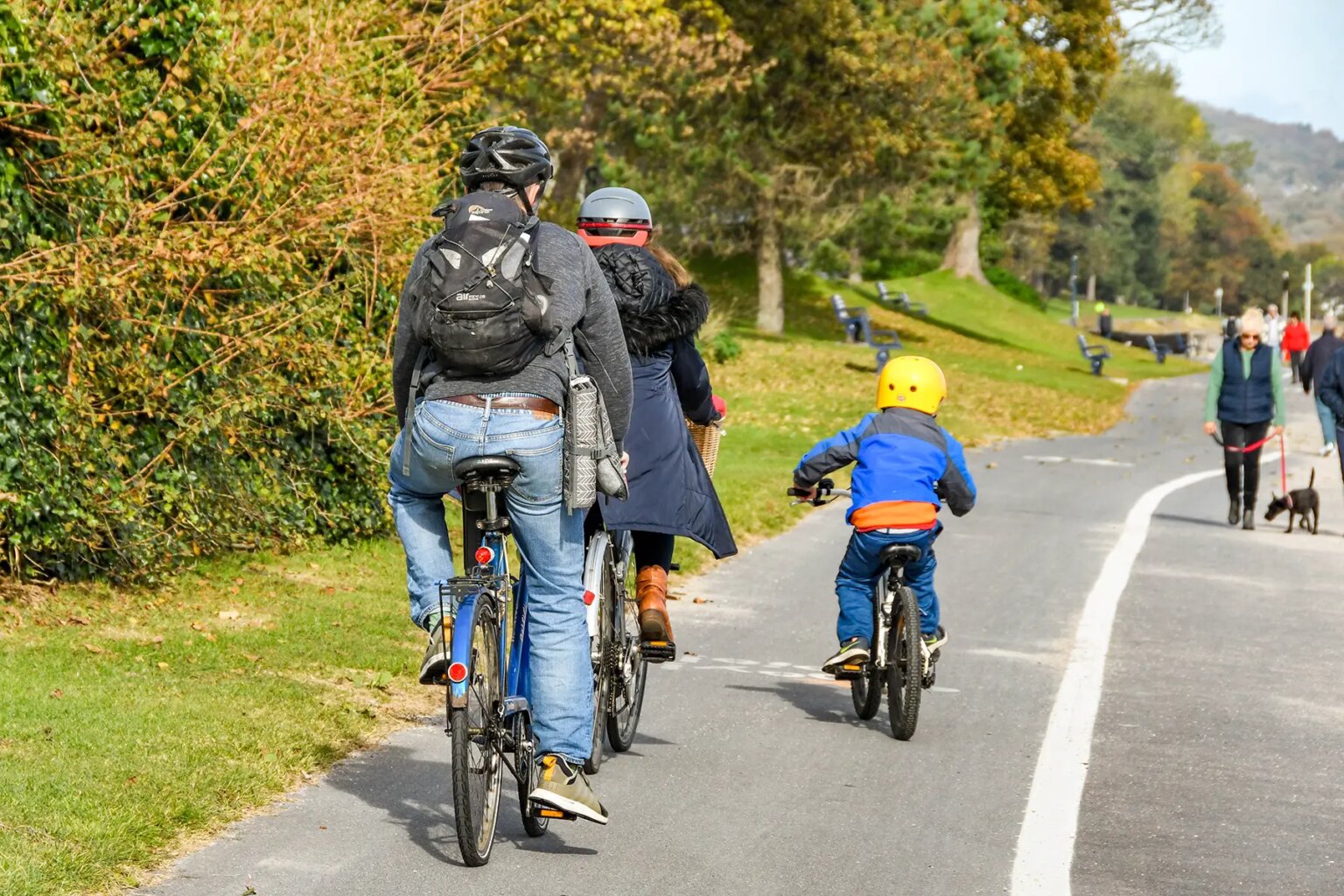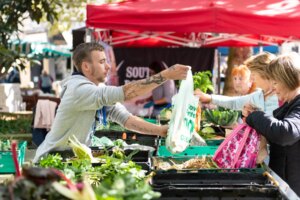If you’re a green-minded expat living in the UK, you might be wondering what you can do to make your new life more sustainable. Thankfully, sustainable living doesn’t mean giving up the things you love about life in the UK. In fact, these days, making your life greener is so simple it can easily become part of your everyday life.
To give you an idea of how you can boost your green credentials in your new home, this article outlines 10 simple steps towards sustainable living in the United Kingdom.
HelloFresh
Want to create some classic British dishes in your own kitchen? HelloFresh is a leading meal-kit provider that delivers innovative recipes from the UK and around the world straight to your doorstep. Choose from a range of recipes and let HelloFresh transform mealtime for you and your family.
1. Download the right green apps
Does the answer to a more sustainable life really live inside your smartphone? Not quite, but downloading the right apps is an important – and easy – first step. Thankfully, there are plenty of green apps in the UK, covering everything from food to fashion to fitness! But which apps should you be downloading? Well, that depends on you. If an app is really going to make a difference to your life, it’s essential you choose the ones you’ll actually use.

- If you like your sweet – and savory – treats, Too Good To Go is a great way to save delicious fresh food from the trash. Using the app, you can pick up these goodies at a reduced price from local cafes, restaurants, and bakeries.
- Are you a fashionista? Then avoid fast fashion choices with Good on You, an ethical clothing app for your wardrobe.
- If you spend your life looking for things online, why not help plant a tree with every search? Download Ecosia and your own personal tree counter will tell you how many you’ve helped plant.
For more information on what apps you should be downloading, read our guide to the must-have apps in the UK.
2. Check out your local charity shops
If there’s one thing new arrivals to the United Kingdom will notice when they first walk down their local high street, it’s that there are plenty of charity shops. In fact, you’ll be able to find them in almost every town across the country, as there are an estimated 11,000 thrift shops. These stores are operated by both large international charities and small, local organizations. They stock a wide range of donated, second-hand goods, and all the profits go straight to the charity.

These second-hand stores can be a great way of finding excellent bargains while reducing your carbon footprint. Most stock a range of clothes, household goods, books, and music. At larger stores, you’ll also find second-hand furniture, including sofas, bookcases, and more.
Charity shops aren’t just good for picking up bargains, either. If you’re looking to upgrade your furniture or wardrobe, then contact your local store and see how you can donate. Not only is this a greener choice, but it’ll also save you the challenge of trying to get it recycled by your local authority in the UK.
3. Choose a green energy company
Green-minded expats arriving in the United Kingdom will be pleased to know that the local energy sector is one of the most renewable in Europe. In fact, in the first quarter of 2020, renewable sources generated a record 47% of the UK’s electricity. This figure is expected to increase as the UK government looks to move away from fossil fuels by investing in the country’s wind farms and solar panels infrastructure. And the good news is that you can help this energy shift by making some easy choices at home.

Setting up gas and electricity in the UK at your new home will probably be one of the first things you do when you move to the United Kingdom. When it comes to choosing your energy supplier, you have plenty of choices. However, if you’re looking to make sustainable living choices, why not consider one of the UK’s green energy suppliers? An increasing number of smaller UK energy providers offer 100% green electricity, including Octopus and Bulb. If all this choice is a little too confusing, comparison websites like MoneySuperMarket and Uswitch can help.
4. Leave the car at home
If you’re looking to reduce your carbon emissions, an easy way to do it is to reassess the way you use your car. According to official figures, transport is the largest contributor to the UK’s greenhouse gas emissions. In a bid to boost the switch to electric vehicles, the UK government announced plans in 2017 to ban the sale of new petrol and diesel cars from 2040. However, while electric vehicle sales are increasing in the UK, uptake remains slow due to issues with EV charging infrastructure across the country. But, even if you don’t buy the latest electric model, there are still simple ways you can reduce your carbon emissions.
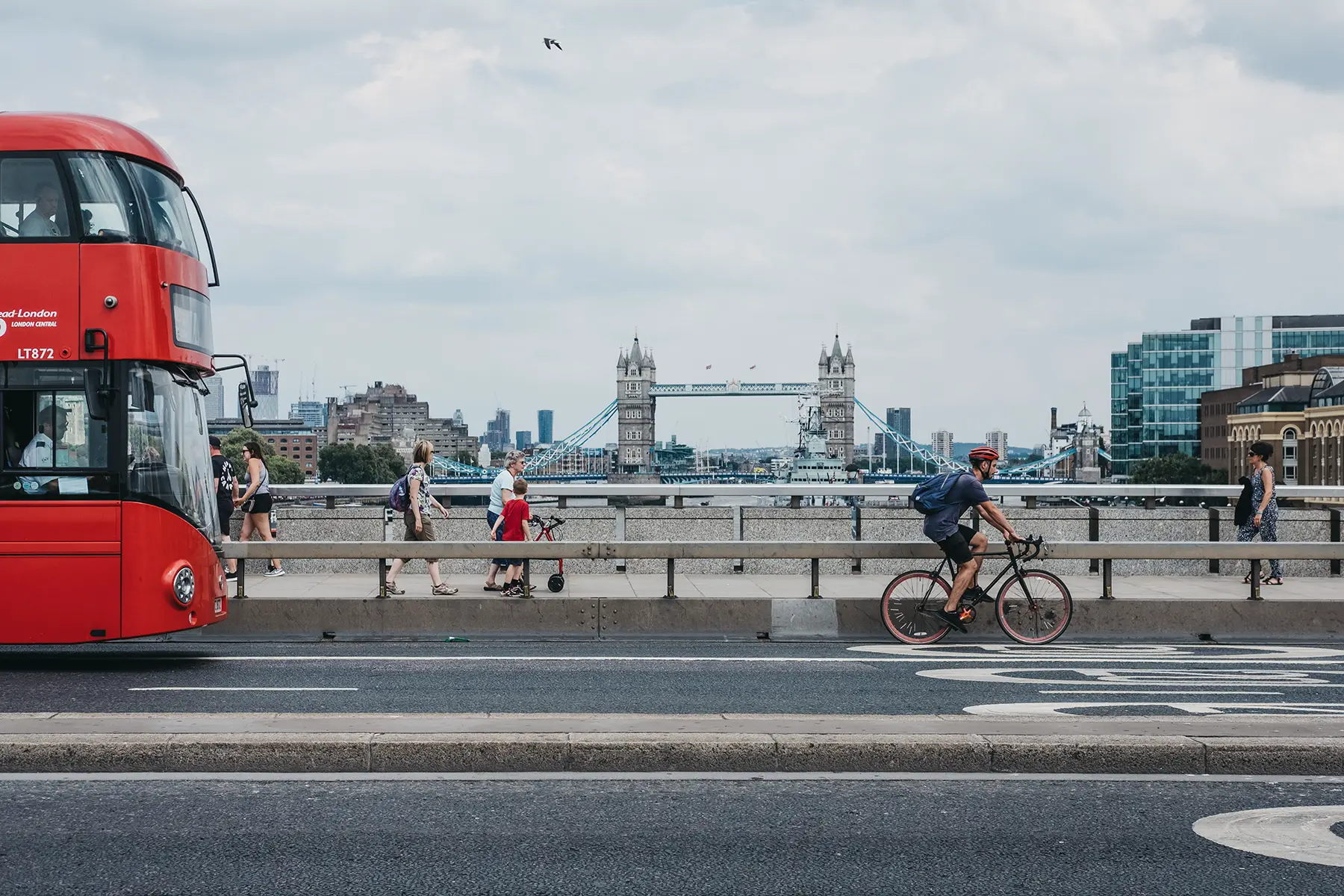
While many expats living in the UK will find the prospect of going completely car-free too challenging, it is definitely possible in some places. The local public transport networks in British cities are good enough to ensure you can ditch the car and lower your carbon footprint. If you don’t fancy catching the bus or metro, why not consider signing up for a car-sharing platform like Zipcar or Turo? Alternatively, hop on your bike and get some exercise by exploring the UK on two wheels.
5. Reduce your food waste
When it comes to sustainable living, the issue of food waste is a growing concern across the UK. According to environmental charity Wrap, households in the UK threw out 4.5 million tonnes of edible food in 2018 alone. This equates to around £10 billion and is associated with over 10 million tonnes of greenhouse gas emissions. That’s because when you throw out food, you don’t only waste the food itself but also all the energy and resources that went into producing that food. And the answer to solving this problem starts at home.
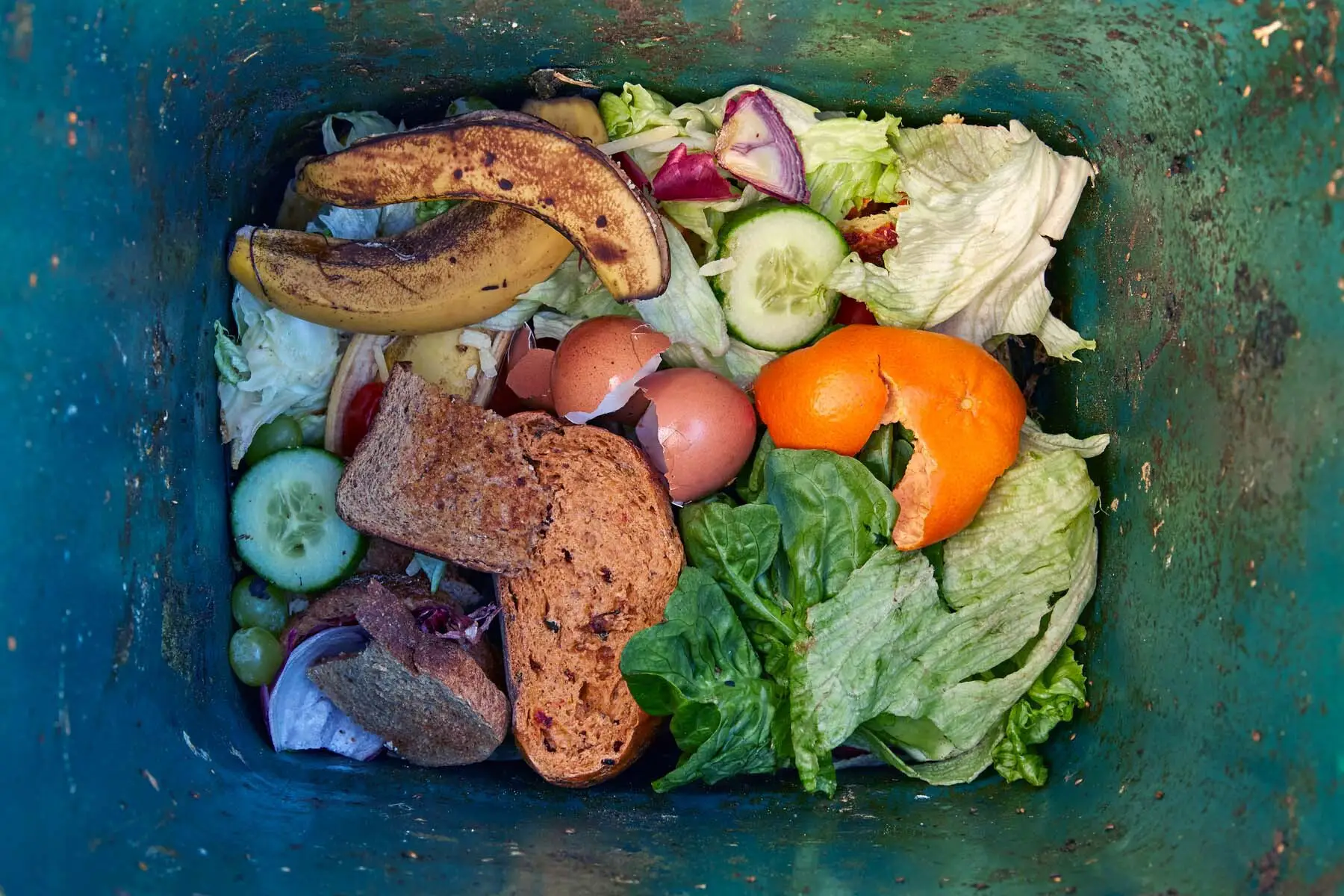
Thankfully, there are plenty of simple ways you can reduce your household food waste in the UK. These range from decluttering your fridge so you can better see what’s inside, to shopping smarter when you visit your local British supermarket. One easy way to ensure you don’t end up with too many groceries is to use a meal kit delivery service. These include:
As well as providing fresh and innovative recipes for you and your family, you won’t be left with any unused groceries. This will cut down your household food waste without you even noticing.
6. Watch your water usage
Fresh water is becoming an increasingly precious resource throughout the world, and the fairly rainy United Kingdom is no exception to that. According to the experts, the average UK resident uses around 150 liters each and every day – a figure that rises by 1% every year. Yet despite its rainy reputation, the UK has a surprisingly limited amount of water readily available for human use. In fact, the South East of England – the UK’s most densely populated area – has less water available per person than both Syria and Sudan. So, how can you help conserve water in your everyday life?
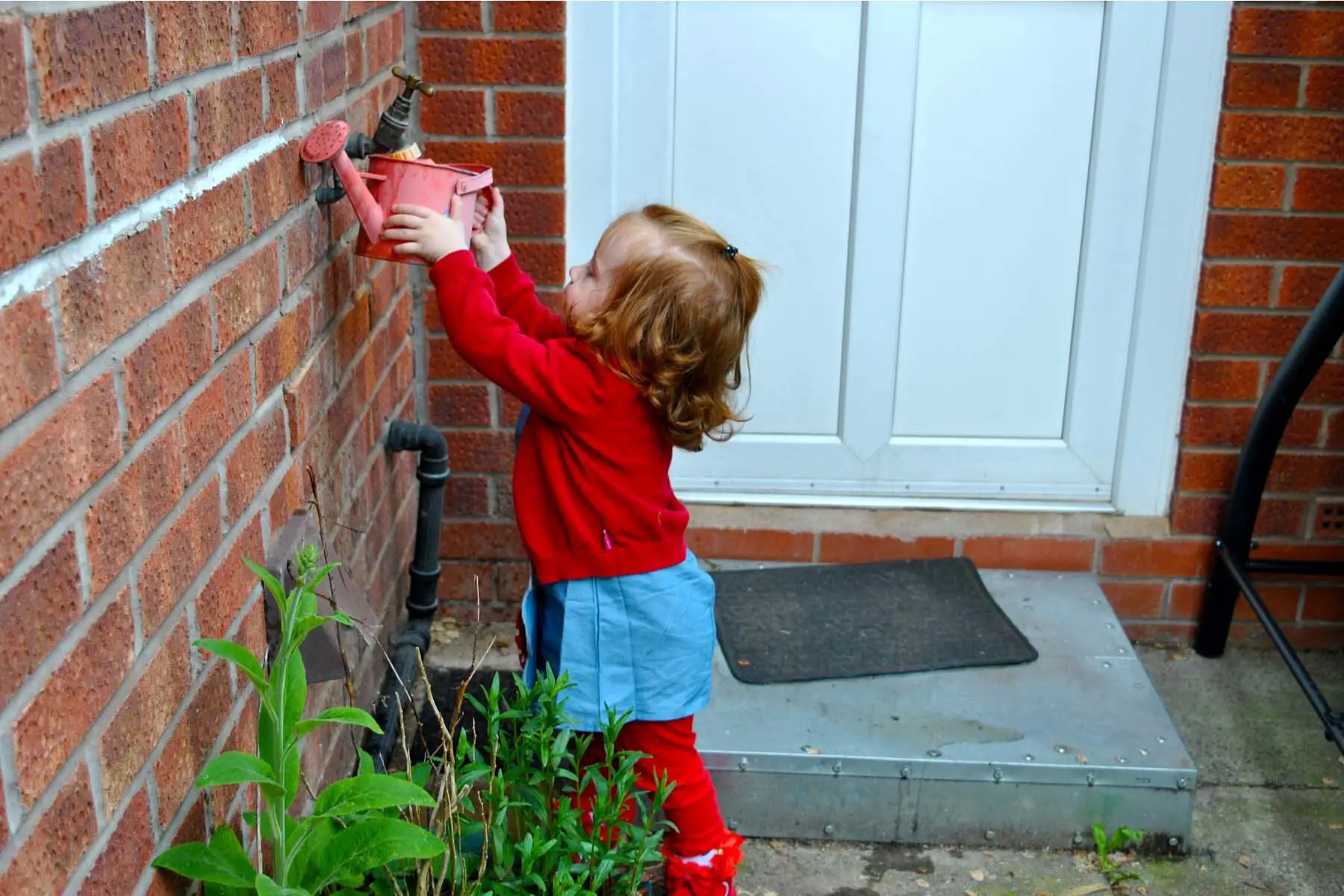
Thankfully, there are plenty of small, simple ways you can reduce your water use in and around the home. Unlike energy companies, you won’t be able to change your water provider in the UK. However, many providers offer advice and products aimed at helping you save water. These include water-efficient shower heads and shower timers. Saving water is not just confined to the bathroom, either. Whether you’re cooking, cleaning, or gardening, there are lots of ways you can reduce your water use.
7. Go paperless with your banking
When you’re setting up your new life in the United Kingdom, opening a bank account in the UK is probably high on your list. Not only will it help you set up important payments for your home internet in Britain, your UK mobile phone contract, and more, it’ll also make it easier for you to do your household shopping on your local British high street. However, banking can also mean a lot of documents and letters being delivered to your home. This includes bank statements, credit card bills, and other banking literature.

These days it’s pretty easy to make your banking experience completely paperless. While most of the larger retail banks offer an increasing number of paper-free options, the easiest way to go paperless is by signing up for mobile banking in the UK. There are a growing number of mobile banks to choose from. Not only can you apply for an account in minutes, but you’ll also receive all your bills and correspondence straight to your phone.
8. Replace those old appliances
If you’re moving into a new home – particularly a rented one – your first thought probably isn’t about the energy efficiency of your appliances. In fact, you’ll likely be happy if they just work and you can make sense of the instruction manual. However, if you’re making the switch to more sustainable living in the UK, you might want to rethink that old fridge or toaster. Figures show that not only will a new appliance run on less energy, it’ll also help you save money on your bills.
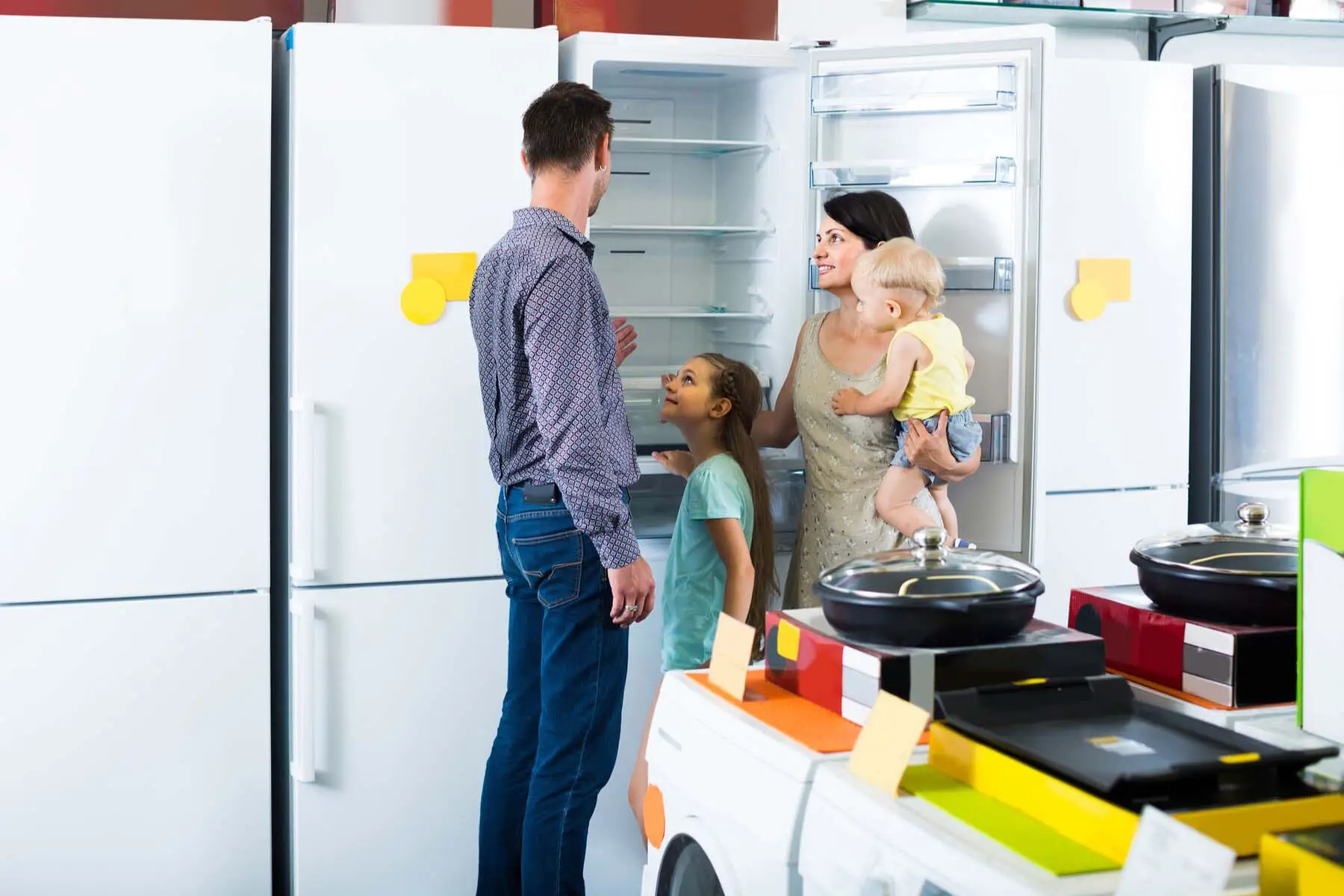
If you’re in the market for new electronics, you have plenty of shops to choose from in the UK. Dedicated electrical retailers like Hughes and Currys PC World stock a range of products. Catalog-based retailer Argos is another option, as are most large UK department stores and some supermarkets.
And of course, if you are replacing your old appliances, be sure to recycle them efficiently! Most local authorities in the UK will have a designated recycling point for these items. Read our guide to recycling in the UK for more details.
9. Buy local
How far have your groceries traveled before they make it into your kitchen? We’re not talking about the journey from your local UK supermarket, either – we mean the total distance from field to fridge. The food on supermarket shelves hails from all over the world, whether it’s fresh or dry. This distance is what experts refer to as food miles, and tackling them is a big part of sustainable living in the UK. According to UK government stats, transporting food to and around the UK produces around 19 million tonnes of carbon dioxide every year. That’s the same as around 5.5 million cars.
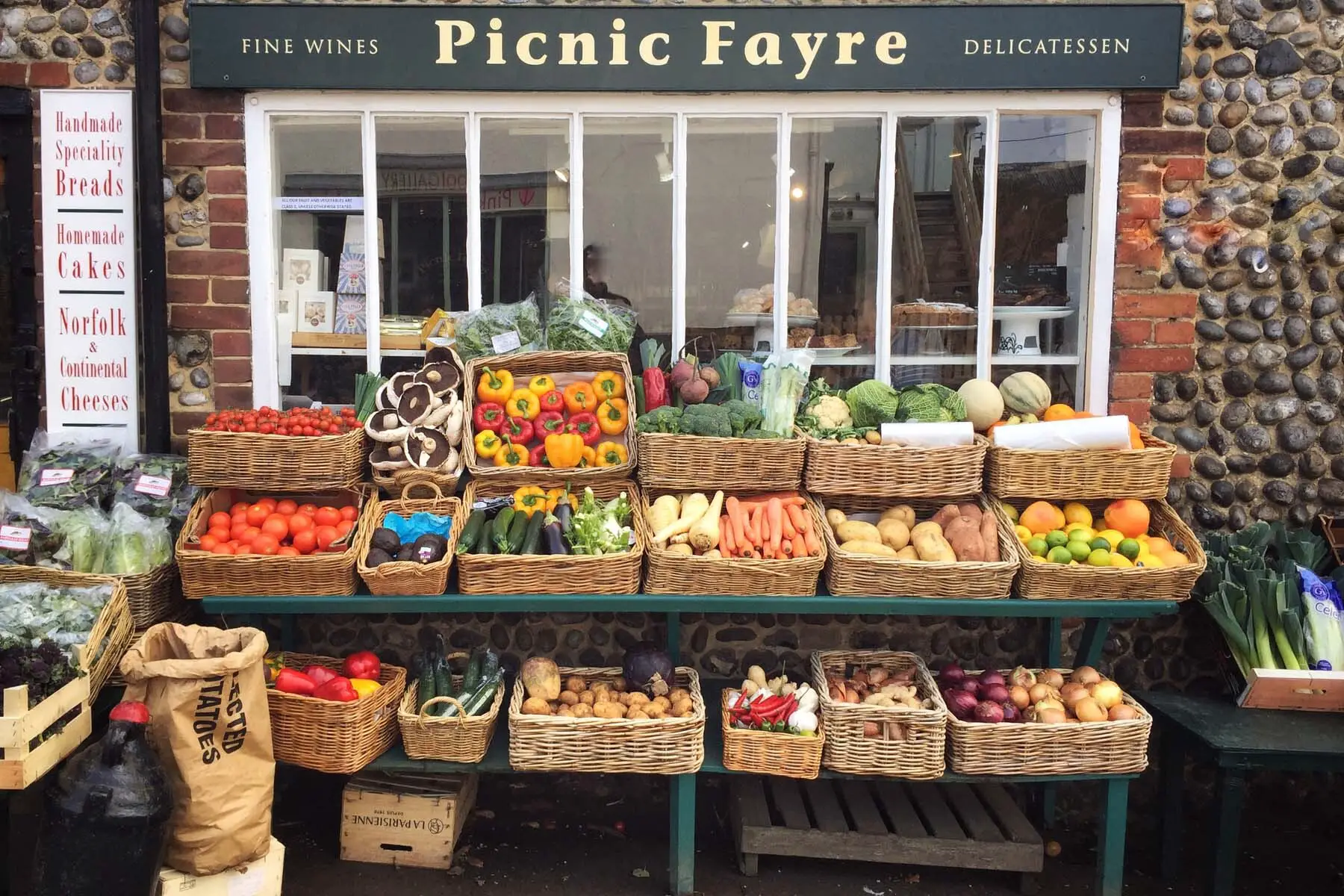
But what can you do to reduce the food miles of your weekly grocery shop? Firstly, making different choices at the supermarket can help. This includes choosing locally-grown options wherever possible, or opting for seasonal fruit and vegetables instead of those grown overseas. The second way to do this is by shopping locally. Most towns and cities in the UK have at least one local weekly market where you’ll be able to buy fresh products from local farmers and producers. This will help you quickly reduce those food miles while enjoying fresher, locally-grown foods.
10. Recycle, recycle, recycle
When trying to live more sustainably, it’s essential you remember your three R’s: reduce, reuse, and recycle. We’ve looked at reducing things like your food waste and car use. We’ve also discussed reusing water and all those bargains you find at your local charity shop. Recycling is the third R of living sustainably, and for many, it’s the easiest one to achieve. The UK has a fairly well-developed recycling system, but still only recycles around 45% of all household waste. However, you can help improve that figure.
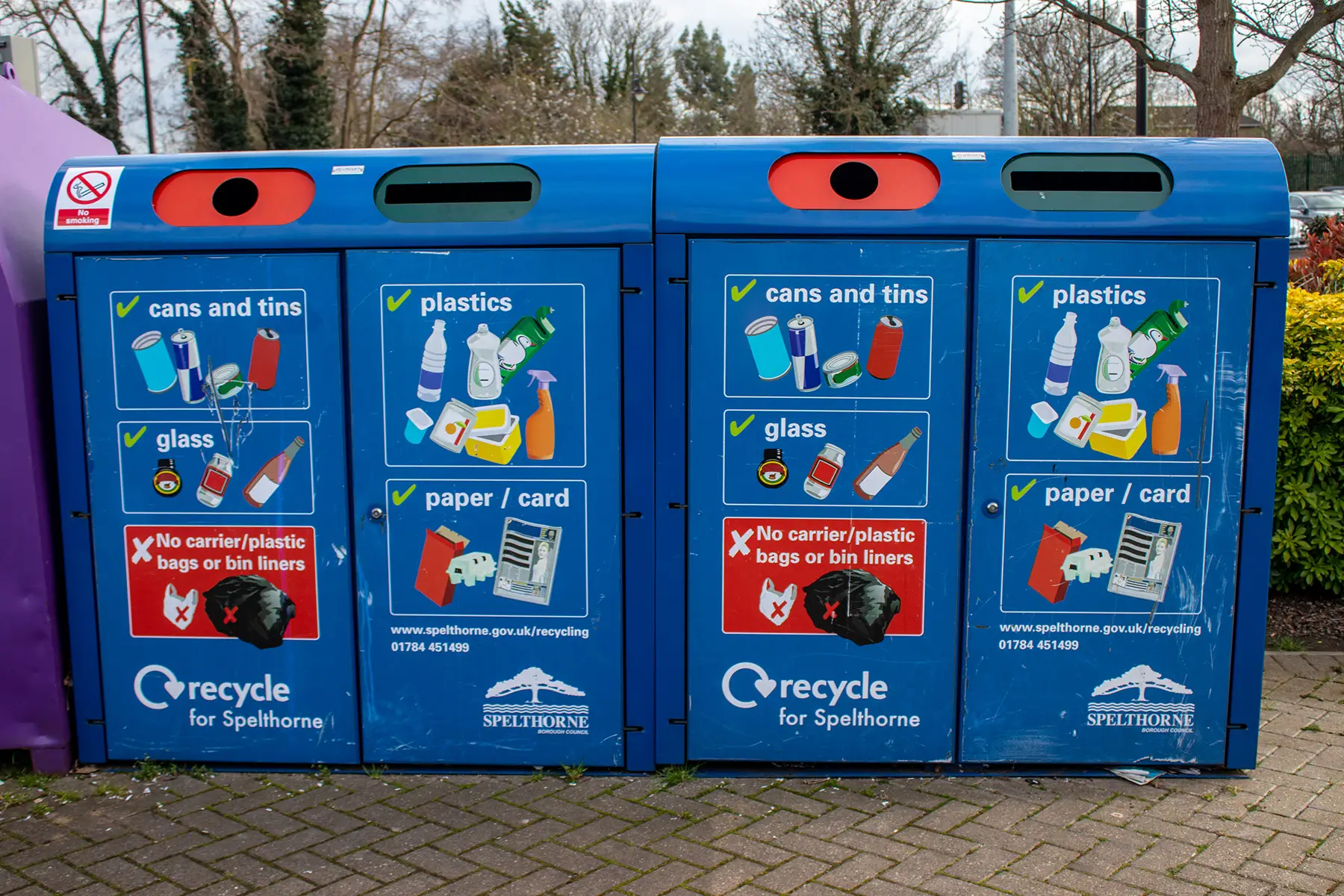
Most household recycling is done by your local council through curbside collections. These usually happen weekly or fortnightly, depending on your council. Towns and villages of all sizes also have recycling centers where you’ll be able to recycle items like clothes, shoes, and glass bottles. These are often found in supermarket car parks or near public services like libraries and leisure centers. However, what and where you can recycle varies between local authorities. For more information, read our guide to recycling and garbage collection in the UK.
Useful resources
- WRAP – food waste charity in the UK
- Energy Saving Trust – independent UK body promoting energy efficiency
- Recycle Now – advice and information on recycling across the UK
